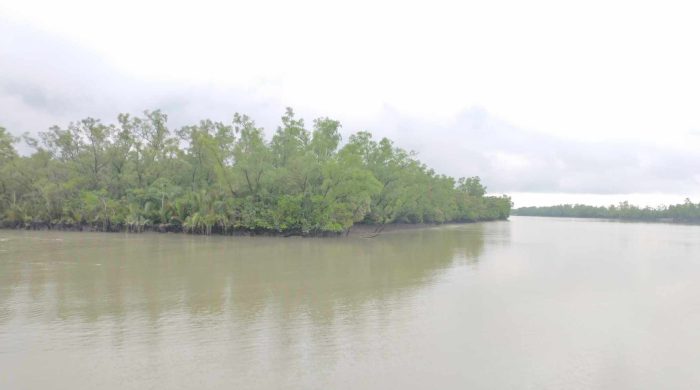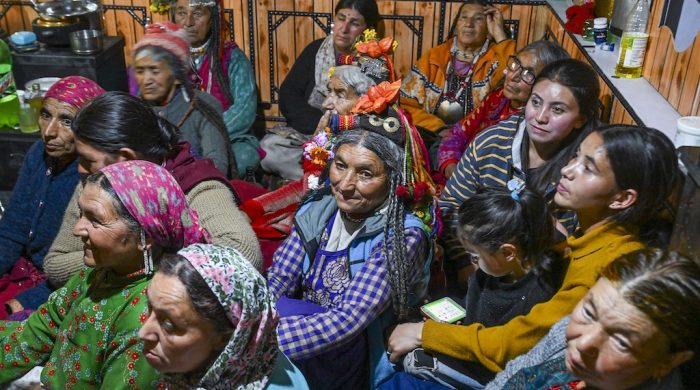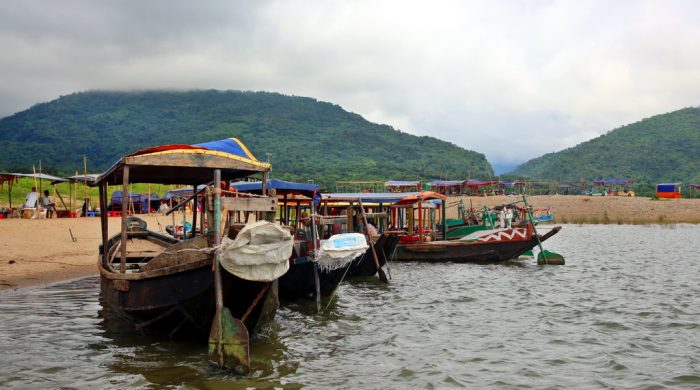The destinations open to travelers vaccinated against Covid-19

- Update Time : Wednesday, February 17, 2021
- 232 Time View

As the Covid-19 pandemic continues to wreak havoc on the travel industry, countless destinations around the world are rolling out vaccines to their most vulnerable citizens.
The UK has already vaccinated over 15 million people, while the US is currently administering 1.6 million shots a day.
Meanwhile, Denmark has announced plans to launch a coronavirus digital passport by the end of February that will act as documentation the holder has been fully vaccinated against Covid-19.
Although it’s worth pointing out that the main Covid vaccines are around 95% effective, which means vaccinated individuals may still become infected and spread the virus to others, there’s no doubt that these successful rollouts are a step in the right direction.
As a result, a number of destinations are choosing to either drop border restrictions for travelers who’ve been fully vaccinated, or ease them significantly.
From Cyprus to the Seychelles, here are seven destinations reopening to tourists who’ve received the Covid-19 vaccine.
Cyprus
Back in December, Cyprus became the first destination to announce plans to allow travelers who’ve been fully vaccinated to enter without having to go into quarantine.
In addition, visitors who provide proof that they’ve received both doses of a Covid-19 vaccine will be allowed to visit without providing a negative PCR test result on arrival.
This will likely only apply to those arriving from destinations on the country’s safe travel list, which is regularly updated. However Cyprus recently agreed a deal with Israel that allows vaccinated travelers to travel between the countries without restriction.
“The amended action plan is expected to further boost the interest of airline companies to carry out additional flights to Cyprus, improve connectivity and increase passenger traffic,” transport minister Yiannis Karousos told the Cyprus Mail newspaper when the plan was announced last year.
While it was previously claimed that the new rules would come into effect on March 1, this not been confirmed by government officials as yet.
Currently travelers who are permitted to visit Cyprus have the option to either provide a negative PCR test taken within 72 hours before travel, or undergo a test on arrival.
They must then go into quarantine for two weeks in government-assigned accommodation. The isolation period can be shortened slightly if travelers undergo a molecular test on their tenth day of quarantine at their own expense and receive a negative result.
Estonia
Estonia hasn’t just dropped mandatory quarantine requirements for EU travelers, it’s also relinquished them for those with evidence proving they’ve recovered from Covid-19 in the past six months.
The European country is also accepting those with vaccinations from nine suppliers across the world rather than just Moderna, Pfizer-BioNTech or Oxford-AstraZeneca, the three that have been approved by the European Union.
Only vaccination certificates produced in Estonian, Russian or English will be recognized and visitors who’ve previously had Covid will need to submit a doctor’s certificate, as well as a recent PCR test indicating they are no longer infected with the virus.
“This is to show mutual solidarity. If we take into account vaccines in use in other countries, we could hope that vaccines in use in our country will also be taken into account in other countries,” Hanna Sepp, head of the country’s Infectious Diseases Surveillance and Epidemic Control Department, told Estonia television organization ERR News.
Estonia currently has a 10-day mandatory quarantine in place for arrivals, with exceptions for European countries deemed low risk, such as Bulgaria, Iceland and Norway, as well as evidence of a negative PCR test taken within three days of arriving. Those arriving from the UK are also required to present a negative PCR test taken no earlier than 72 hours before arrival.
Georgia
Georgia, which sits at the crossroads between Asia and Europe, has also opted to lift restrictions for fully vaccinated travelers.
The Ministry of Foreign Affairs for Georgia recently announced that all visitors who’ve received two doses of any Covid-19 vaccine are permitted to enter the nation without producing a negative PCR test.
“Citizens of all countries, traveling by air from any country may enter Georgia if they present the document confirming the full course (two doses) of any Covid-19 vaccination at the border checkpoints of Georgia,” the Ministry of Foreign Affairs for Georgia said in a statement.
Non-vaccinated travelers must present a negative PCR test result taken within 72 hours of travel and are also required to take a second test “at their own expense” on day three of their stay.
Those who’ve traveled to the United Kingdom within 14 days of their visit must undergo a 12-day mandatory quarantine upon entry.
Iceland
From May 1, fully vaccinated travelers from European Union countries, as well as Liechtenstein, Norway and Switzerland, can skip quarantine when they arrive in Iceland and will not be required to submit a negative PCR test.
Visitors who can provide a paper vaccination in Icelandic, Danish, Norwegian, Swedish or English proving they’ve had two doses of one of the three main Covid-19 vaccines will be exempt from border restrictions.
However, those who present an “invalid” document will have to “undergo double testing with quarantine in between,” according to the Icelandic Directorate of Health.
The popular destination is also planning to issue digital “vaccination certificates” to Icelandic citizens who’ve been vaccinated “to facilitate the movement of people between countries.”
Non-vaccinated arrivals from destinations where travel to Iceland is permitted must take a Covid test on arrival, before going into quarantine for five to six days and taking a second test.
Exemptions will be made in some circumstances, such as those with a valid medical reason.
Poland
Travelers from EU countries can visit Poland without undergoing its mandatory 10-day quarantine “on the basis of a certificate confirming vaccination against Covid-19.”
The European country lifted restrictions for arrivals who’ve been fully vaccinated on December 28.
Those who provide a negative SARS‑CoV‑2 test on arrival are also exempt as long as there’s no more than 48 hours between the time they receive their test result and the time they cross the border.
Romania
All travelers arriving in Romania from permitted destinations who have been fully vaccinated from Covid have been exempt from quarantining on arrival since January 18.
The new rules were announced by the European’s country’s National Committee for Emergency Situations (CNSU), who stipulated that visitors and returning residents will need to show evidence that they’ve had two doses of the vaccine in order to avoid mandatory isolation.
The second dose must have been administered at least 10 days prior to their arrival.
“The vaccination proof, including the date when the second dose was administered, should be made through the document issued by the health unit that administered it, whether that be in Romania or abroad,” the CNSU said in a statement.
At present, travelers arriving from countries on Romania’s “yellow list,” which is made up of destinations of high epidemiological risk, are required to quarantine for 14 days.
Those who submit a PCR taken no fewer than 72 hours before entry must quarantine for 10 days.
The Seychelles
In January, the Seychelles joined the increasing number of destinations to drop quarantine requirements for travelers who’ve been vaccinated against Covid-19.
Fully vaccinated visitors are now permitted to enter the remote destination situated off the coast of Tanzania without having to quarantine for 10 days.
However, those who’ve received a full course of any Covid-19 vaccine are still required to present a negative PCR test result taken within 72 hours of travel, as well as a certificate from their national health authority verifying that they’ve been fully vaccinated.
Non-vaccinated travelers from the Seychelles’ category 1 and 2 list and those who arrive by private jet, are required to self-isolate for 10 days and provide a negative PCR result taken within 72 hours of arrival.
The 115-island nation is aiming to become the first nation to vaccinate its entire population after receiving a donation of 50,000 doses from the United Arab Emirates government.
President Wavel Ramkalawan hopes over 70% will be vaccinated by mid-March. Restrictions will be further relaxed if this target is reached, meaning those permitted to enter the Seychelles will only have to submit proof of a negative Covid-19 PCR test taken within 72 hours of travel.





















